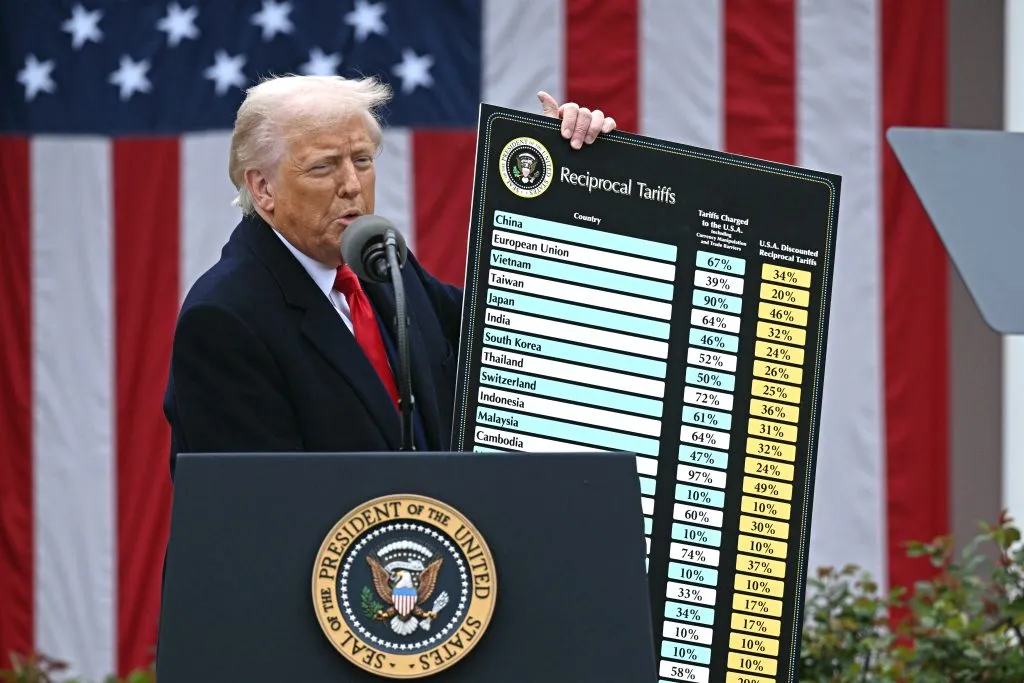US President Donald Trump has slapped tariffs on African countries as part of his so-called ‘Liberation Day’ reshaping of global trade, which also sees a universal 10% baseline tariff on all imports into the US.
Among the African countries hardest hit by Trump’s drive to introduce what he says are ‘reciprocal’ tariffs are the Southern African states of Lesotho, whose goods will be hit with a tariff of 50%; Madagascar (47%); Mauritius (40%); Botswana (37%); Angola (32%) South Africa (30%); Namibia (21%); Zimbabwe (18%); Zambia (17%) and Malawi (17%).
North Africa is also among the regions hit: Libya will be charged 31%; Algeria 30%; and Tunisia 28%. In West Africa, Côte d’Ivoire is the hardest hit at 21%, while Nigeria is subjected to a 14% tariff.
China, the continent’s biggest trading partner, has been hit with a 54% tariff.
The reciprocal and universal tariffs appear to override the tariff-free provisions of the African Growth and Opportunity Act (AGOA), the US legislation that has regulated much trade with Africa in recent decades but is due to expire this September.
Trump claimed that all the countries hit by the new reciprocal tariffs already levy extensive tariffs on the US. For example, it was claimed that hardest-hit Lesotho charges the US 99%, while Madagascar levies 93% and Mauritius 80%. Trump said that a “discounted reciprocal tariff” meant that the new tariffs still left some tariffs at a lower rate than those charged to the US.
A 25% tariff on all foreign-made cars will come in at midnight on 3 April. South Africa, whose exports of vehicles and parts into the United States is estimated at over $2bn, are seeking consultations with the Trump administration on the auto tariff. Automobile exports from South Africa accounted for 64% of South Africa’s exports to the US under AGOA in 2024, according to the South African government.
Trump hits out at trade deficits
Trump’s executive order claimed that disparate tariff rates and non-tariff barriers, as well as US trading partners’ economic policies “that suppress domestic wages and consumption”, are leading to annual US goods trade deficits. He argued that the state of affairs constitutes “an unusual and extraordinary threat to the national security and economy of the United States.”
“Large and persistent annual US goods trade deficits have led to the hollowing out of our manufacturing base; inhibited our ability to scale advanced domestic manufacturing capacity; undermined critical supply chains; and rendered our defense-industrial base dependent on foreign adversaries. Large and persistent annual US goods trade deficits are caused in substantial part by a lack of reciprocity in our bilateral trade relationships,” the order claimed.

Crédito: Link de origem


